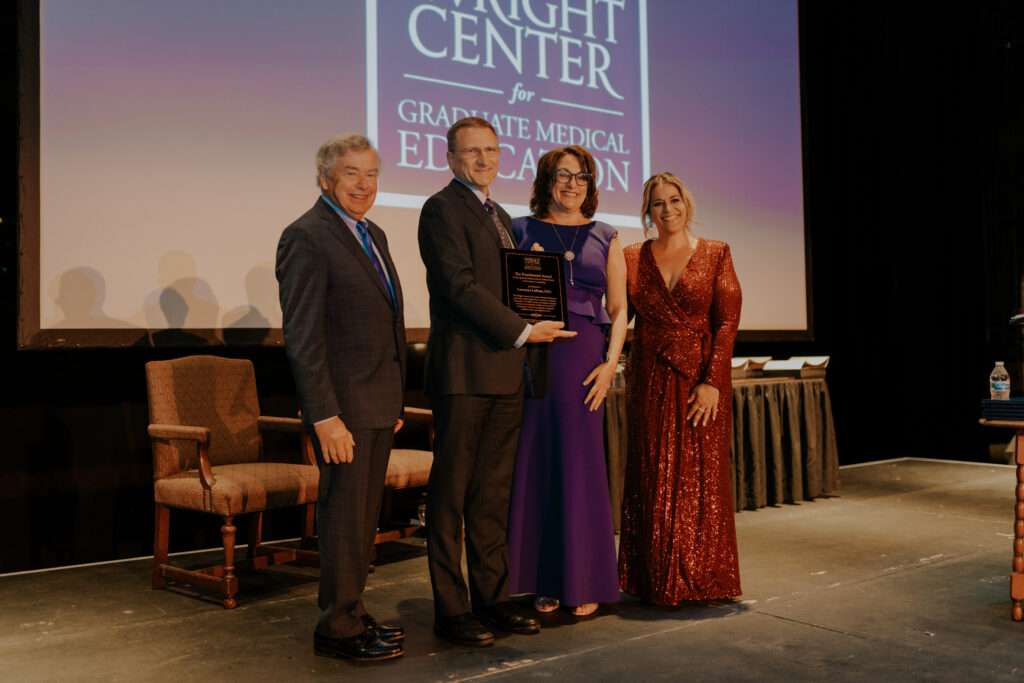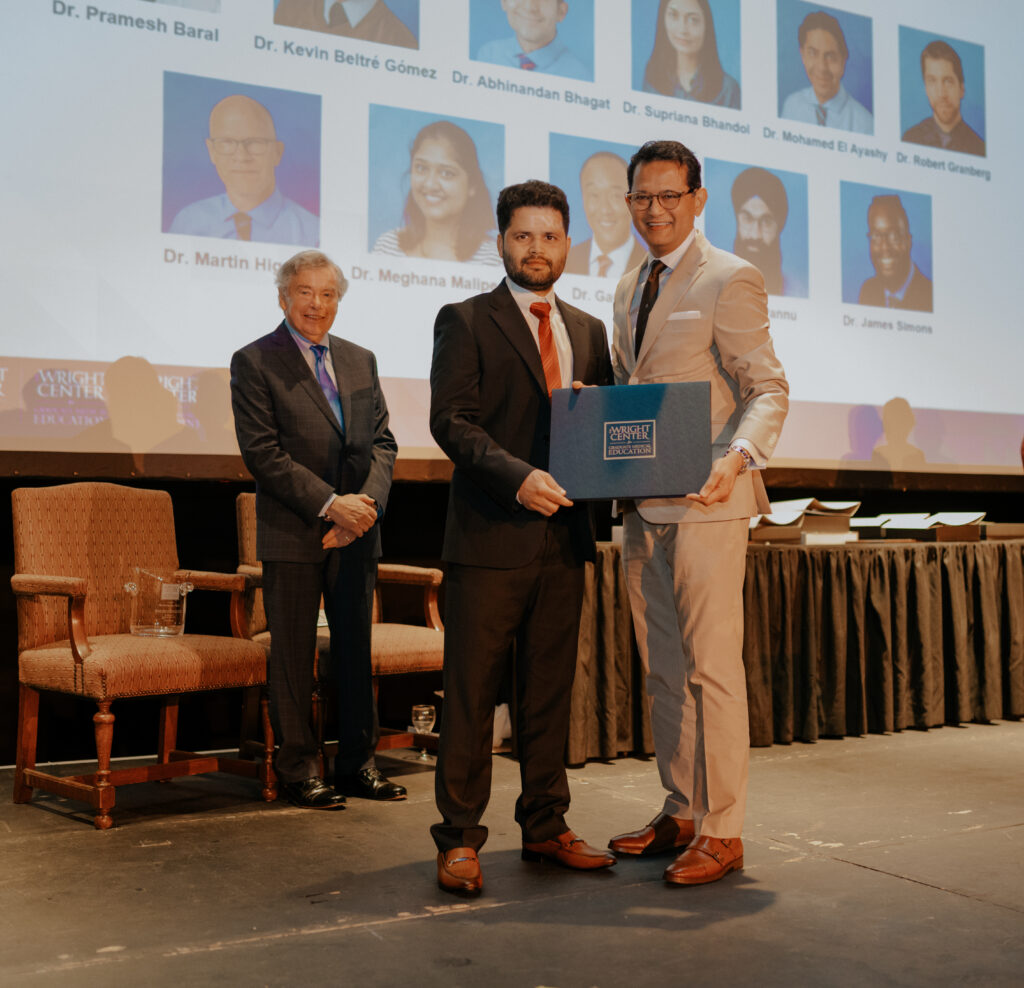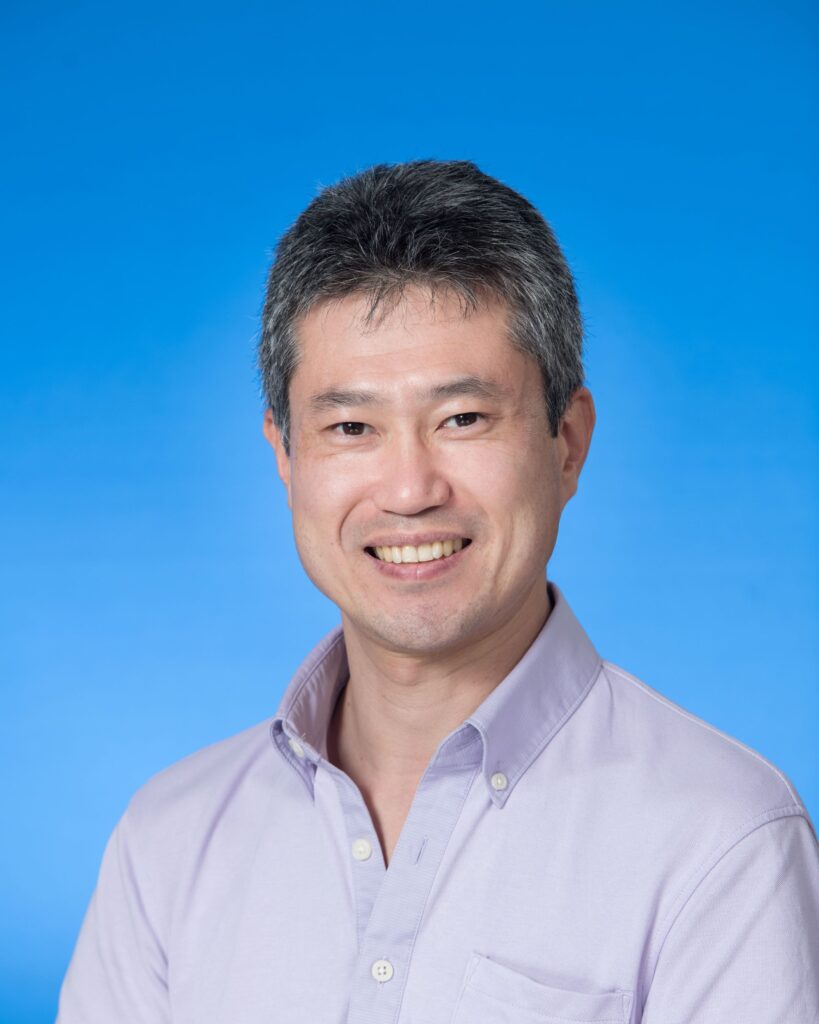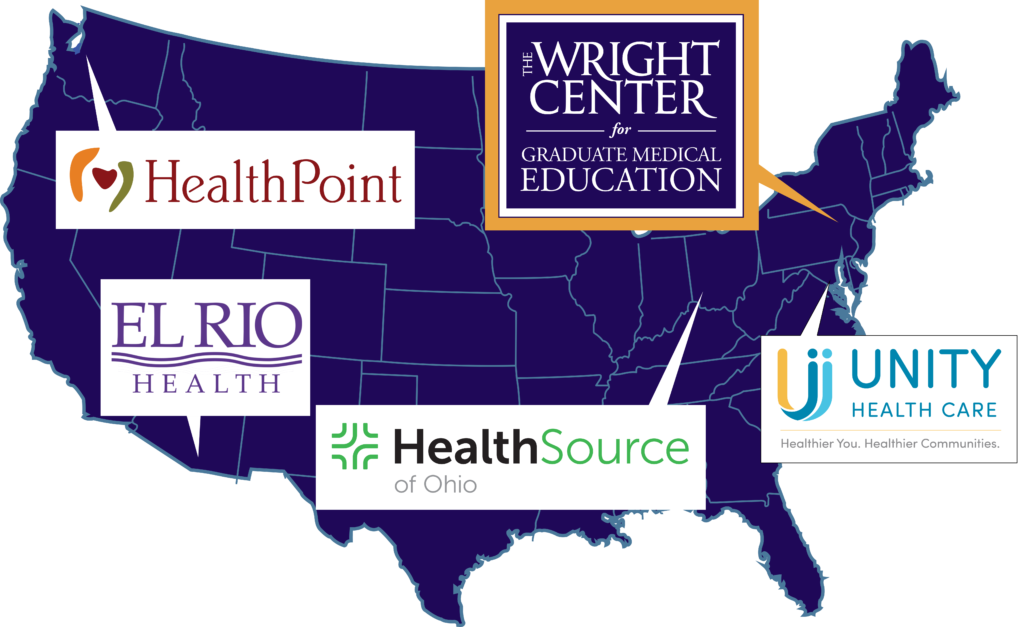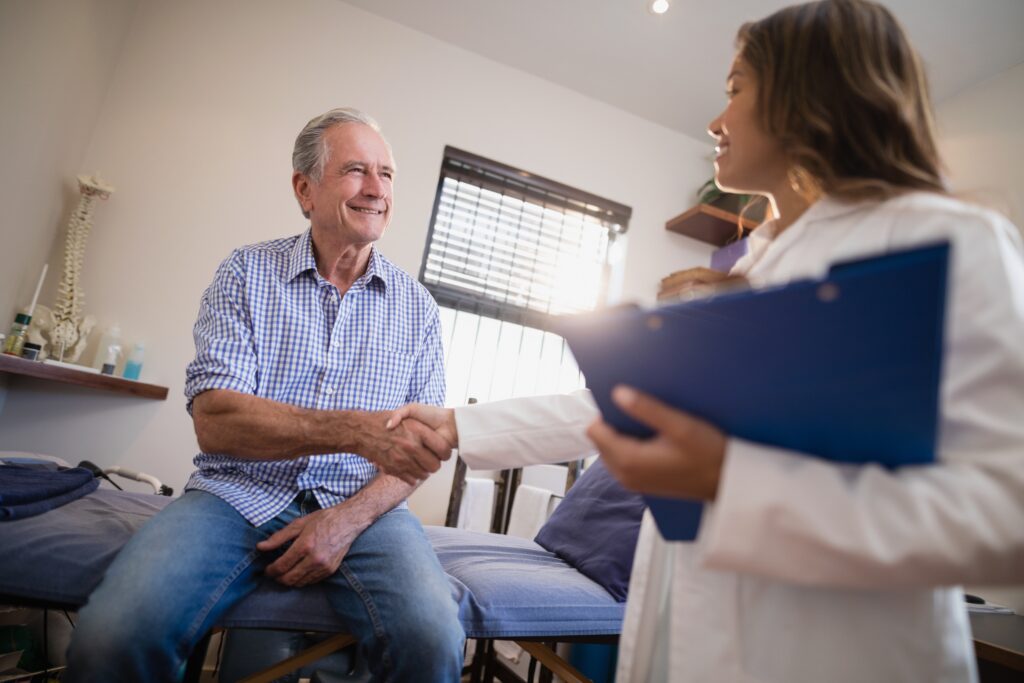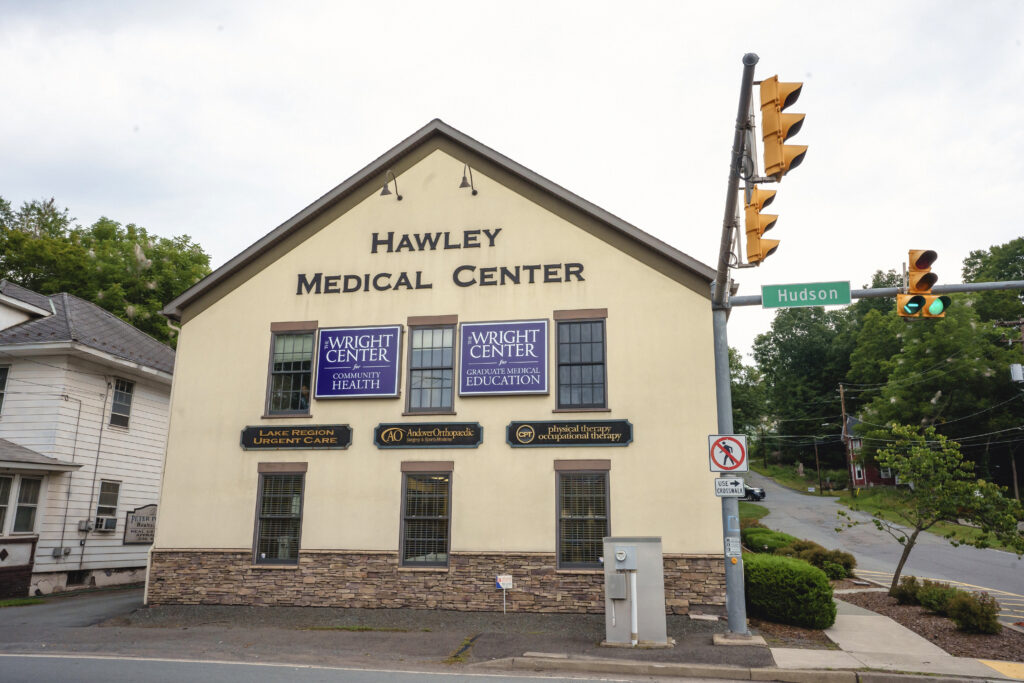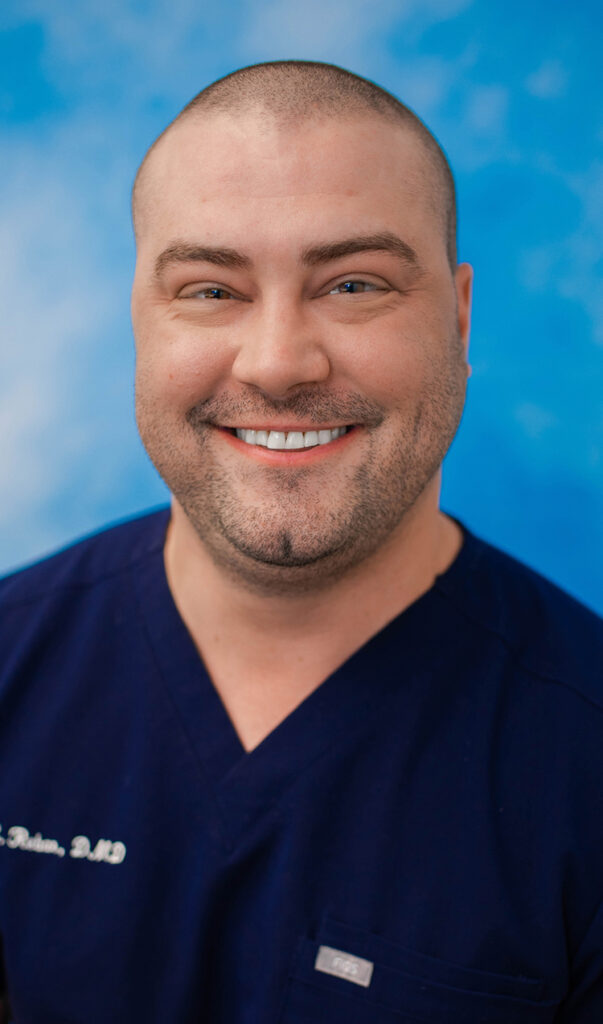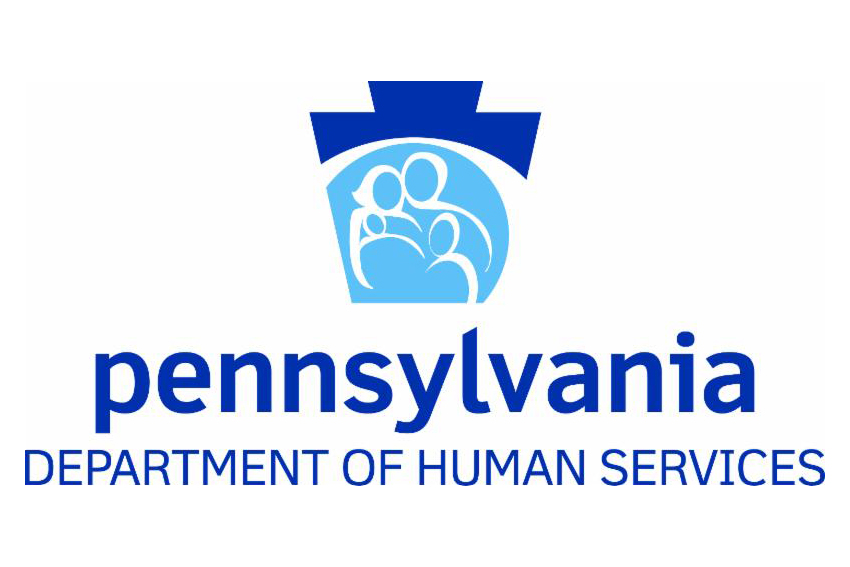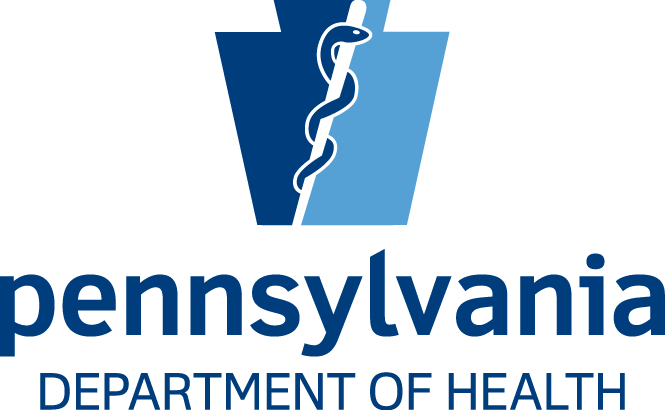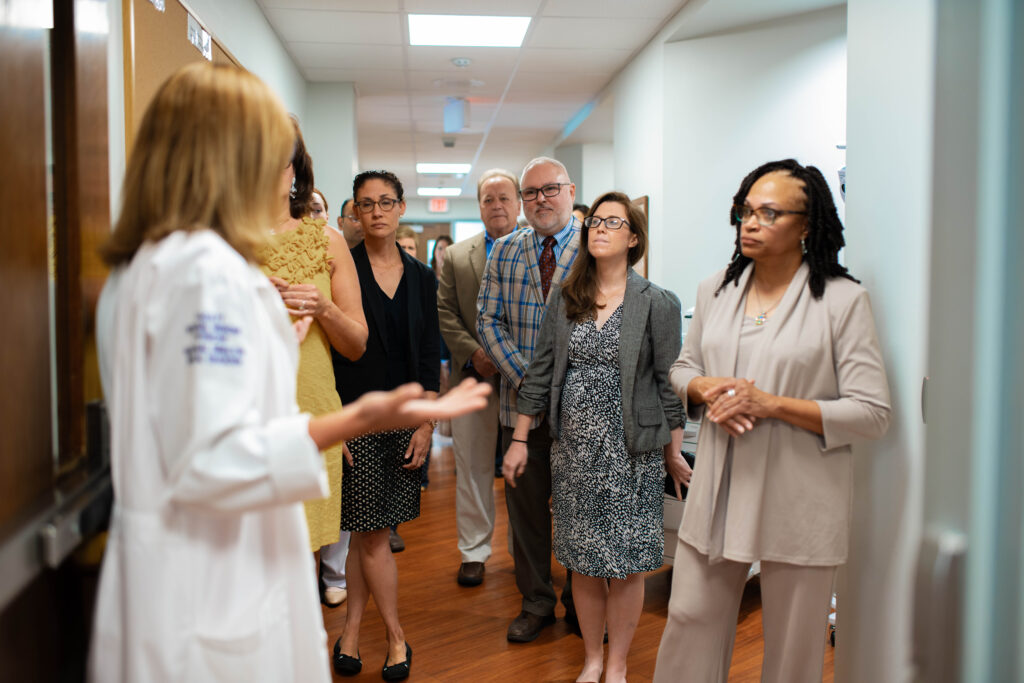
Representatives of the U.S. Department of Health and Human Services (HHS), and Health Resources and Services Administration (HRSA) Office of Intergovernmental & External Affairs toured The Wright Center for Community Health Scranton Practice on Thursday, June 29 to highlight the Biden administration’s work to lower prescription drug costs for Americans and to explain how Medicaid beneficiaries can maintain their health care coverage amid post-public health emergency changes to renewal requirements.
Melissa Herd, acting regional director and executive officer, Office of Intergovernmental and External Affairs, Region 3, HHS; Leah Suter, regional administrator, HRSA; and Robert McKenna, deputy regional administrator, HRSA, and Theresa Devine Kimak, public health advisor, HRSA, discussed the federal initiatives designed to protect health care access with Dr. Linda Thomas-Hemak, president and CEO of The Wright Centers for Community Health and Graduate Medical Education, resident physicians, board members, and clinical care team representatives during a personal meeting and tour of the health care facility that provides oral, primary, preventive, and specialty care services to patients of all ages, income levels, and insurance statuses.
“The Wright Center is privileged to fulfill the delivery of its noble mission by working collaboratively with the United States Department of Health and Human Service and numerous like-minded community partners,” said Dr. Thomas-Hemak. “Together we strive to ensure patients and families in our service area have inclusive access to high-quality, comprehensive, equitable, and affordable primary and preventive health services and a respected voice in the generation of our incumbent and future health care workforce.

“Collectively, we are tirelessly working to bolster our national primary care and public health infrastructure to improve the health care and health of our country,” she added. “We are excited to host and celebrate our accomplishments as a Federally Qualified Health Center Look-Alike, Ryan White HIV/AIDS Program service provider, and Teaching Health Center Graduate Medical Education Safety-Net Consortium with our national partners.”
Thanks to President Joe Biden’s new lower-cost prescription drug law, part of the Inflation Reduction Act of 2022, the lives of people with Medicare are changing for the better.
In addition to giving Medicare the ability to negotiate the cost of prescription drugs, highlights of the new law include a $35 monthly cap per insulin prescription and free recommended preventative vaccines.
With the federal public health emergency ending in May, it marked the discontinuation of Medicaid’s continuous coverage requirement. Medicaid users now must complete their annual renewal for health care coverage. Since May, more than 3,500 Pennsylvanians have been disenrolled because they failed to complete the renewal process. More are expected to lose coverage for the same reason during the year, according to HHS.
The Wright Center for Community Health has been working to educate regional residents about the redetermination process for Medicaid coverage. The regional primary and preventive care provider has been distributing educational packets to patients, while community health workers also offer patients the personal attention they need to complete the renewal application process.
“Medicaid is our Swiss army knife of health – we use it to address maternal health, homelessness, food insecurity, provide mental health support to young people in their schools, to help improve care and coordination for the formerly incarcerated, and more,” Herd said.
Pennsylvania is one of 40 states to expand Medicaid, ensuring people across the state can access health care coverage. Had out-of-pocket costs for covered vaccines been eliminated in 2021, more than 177,459 Pennsylvanians who received vaccines under Part D would have saved almost $11 million or $60.43 per Medicare enrollee. And the $35 monthly insulin cap would have saved more than 80,197 state residents with Medicare an average of $543 on their insulin in 2020, according to HHS.
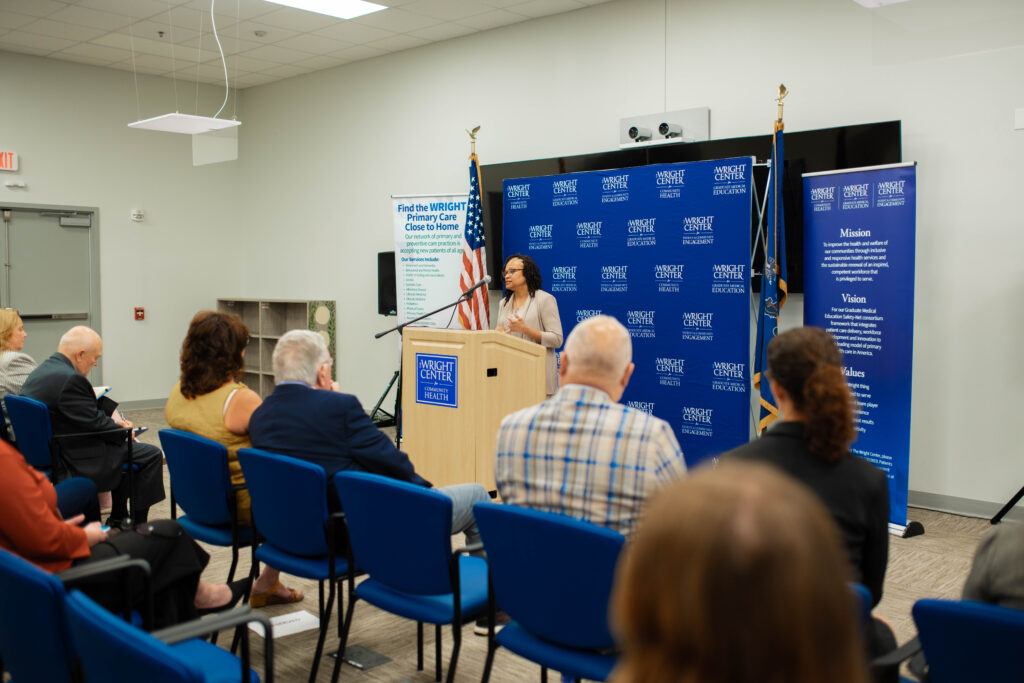
Today, a record 92 million Americans rely on Medicaid or the Children’s Health Insurance Program, better known as CHIP, for their health care, including nearly 3.7 million in the commonwealth, according to HHS.
The Wright Center for Community Health’s patient-centered medical home has nine locations in Lackawanna, Luzerne, and Wayne counties, including a mobile medical and dental unit called Driving Better Health, that serve more than 40,0000 unique patients annually and ensures everyone in the service area has access to integrated, high-quality, affordable health services, regardless of their insurance status, ZIP code, or ability to pay.
“The Wright Center for Community Health and its network of providers in Northeast Pennsylvania emphasize the importance of primary and preventive care for patients of all ages, from pediatrics to geriatrics,” said Dr. Jignesh Y. Sheth, chief medical officer for The Wright Center for Community Health. “The federal changes to Medicaid and CHIP renewal requirements could potentially reduce access to health care for some patients. That’s why the Wright Center for Community Health offers a sliding-fee discount program based on family size and income. It ensures health care services are accessible and more equitable for everyone, he added.”
For more information about The Wright Center for Community Health, go to TheWrightCenter.org or call 570-230-0019.

